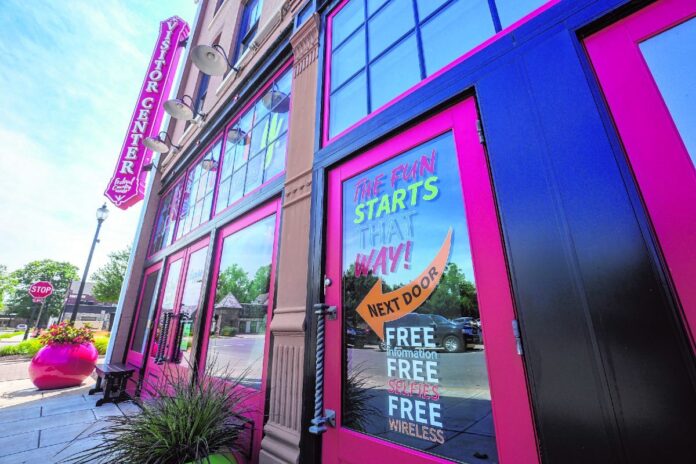With vaccinations more widespread and life opening back up after more than a year, travel is on most people’s minds this summer.
But as tourism slowly returns to Johnson County, local lodging businesses are experiencing continued barriers, including a lack of hotel workers and missing business travel. Those issues will continue to hinder hotels’ ability to bounce back fully from the pandemic.
“I think it’s gonna be a long summer,” said Nicholas Sprague, director of business development for Sprague Hotel Developers, which manages hotels around the state, including several in Franklin, Edinburgh and on the southside of Indianapolis.
Indiana hotels laid off 95% of their employees in 2020, according to Patrick Tamm, president of Indiana Hotel and Lodging Association. Now they’re struggling to get those positions back.
The majority of these former workers were laid off all at once, Tamm said.
“Governors across the country, municipalities shut down restaurants. And, you know, people immediately stopped traveling,” Tamm said. “When that happened, we were done.”
For Columbus-based Sprague Hotel Developers, regaining employees as summer travel picks up has been an issue, Sprague said.
“We looked at, and tried to take advantage of every opportunity we can to keep as much of our staff employed as we can,” Sprague said. “You know, it got pretty bad. Hotels just shut down completely. Luckily we had a federal program, and some federal programs that did help us keep our employees working.”
Recruitment and retention were already the industry’s biggest challenge prior to the pandemic, but polls done by the Indiana Hotel and Lodging Association have shown growing concerns among hoteliers. Over half of the respondents identified shortages of housekeeping workers as their greatest need, with 96% reporting having open positions they’re unable to fill.
Former hotel workers in a variety of positions have likely found employment elsewhere with the skills they developed in the industry, Tamm said.
“They had to provide for their families, pay their own bills,” Tamm said. “I mean that’s scary. And now people may not have to work weekends, and they’re getting paid well, they get benefits. Those are good things.”
Sprague’s hotels have had issues with filling housekeeping roles, which is especially troubling during the pandemic. In an American Hotels and Lodging Association poll, enhanced cleaning and hygiene practices ranked as guests’ number two priority, behind price.
Hotels are expected to add 200,000 direct hotel operations jobs in 2021 but will remain nearly 500,000 jobs below the industry’s pre-pandemic employment level of 2.3 million employees, according to the American Hotel and Lodging Association.
The shortage was most notable over Memorial Day weekend, Sprague said.
“There’s only so much these people can do and they’re being worked, you know, like crazy,” he said of the remaining hotel employees. “And unfortunately, there aren’t people, there’s not much help out there to kind of choose from.”
The situation is improving, Sprague said, but he isn’t sure why his hotels are still struggling to find workers.
“We all have our theories,” he said.
Traffic to central Indiana is driven by youth sporting events, weddings and road trip stops, both Tamm and Sprague said. Combined with Johnson County’s location being right off Interstate 65, this area is convenient for a road trip stop.
Leisure travel, which is rare in Indiana compared to states with large beaches and mountains, is at a good rate for the area.
Business travel — the biggest moneymaker for Indiana hotels — is still at a halt, though.
“We’re seeing more people traveling, absolutely, because of vaccinations,” Tamm said. “But that business traveler still isn’t present. And that’s our bread and butter of travel.”
While the tourism industry was hit hard by the pandemic, Johnson County fared remarkably well compared to other locations.
County hotels did receive some overflow from big Indianapolis events, like the NCAA Tournament and the Indianapolis 500. This is partially why Johnson County and Indiana hotels are doing better than many other locations, Tamm said. Generally speaking, he said Johnson County residents that would normally drive to downtown Indianapolis for work instead are spending more money in the county.
“We’re on the misery index, but central Indiana and the state of Indiana are in a much better position than most,” Tamm said.
Measuring tourism in the area is best done with innkeeper’s taxes, according to Festival Country Indiana Executive Director Ken Kosky. Innkeeper’s taxes are a 5% tax that lodging visitors pay during their stays in Johnson County.
Based on these taxes, April was the best month for tourism in Johnson County since Festival Country Indiana, the county’s convention, visitors and tourism commission, was established. The tourism organization has been working since 2016 to promote activities, businesses and attractions throughout the county.
The group is in the midst of its largest ad campaign ever to encourage visitation to the county, said Kosky. The brand seems to be resonating with people, and the group has established several billboards along Interstate 65 advertising the area, he said.
“There’s a pent up demand to travel, get out, enjoy someplace new, attend festivals and events, visit new attractions,” Kosky said. “So you’ve got the pent up demand for travel, combined with people either being vaccinated now, or being comfortable traveling while not vaccinated.”
Kosky said a program where potential visitors can request a printed guide that lists concerts, festivals and other events in the county has received 5,000 requests.
And statistics show that as summer gets going, things may be improving.
Nationally, Smith Travel Research reported that the week of June 6-12 had the highest weekly occupancy rate nationwide since November 2019, at 66%.
“We’re not getting a lot of the higher corporate business during the week. So without that, we still are sort of tracking behind where we would have been in 2019,” Sprague said. “But you know the weekends and the leisure business, this is definitely on par with what we would expect of a summer.”





